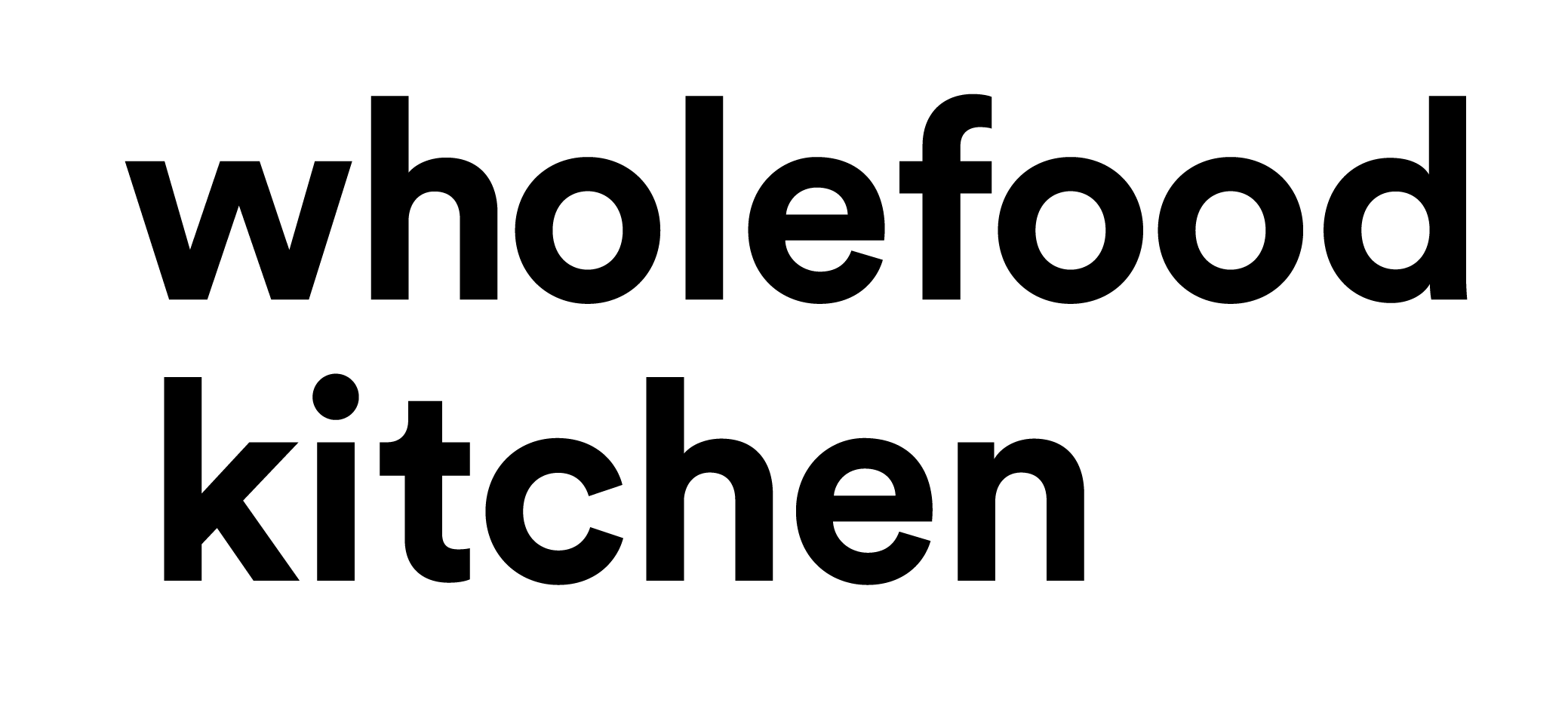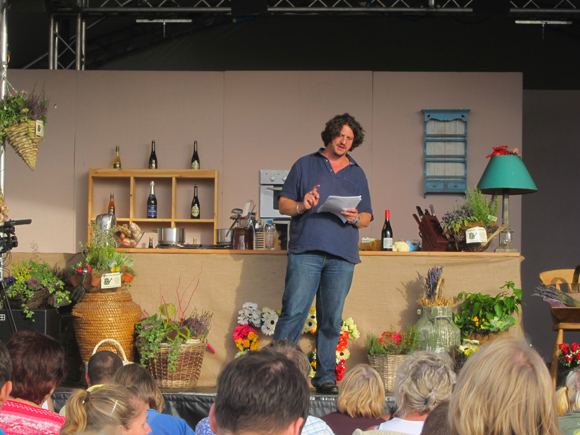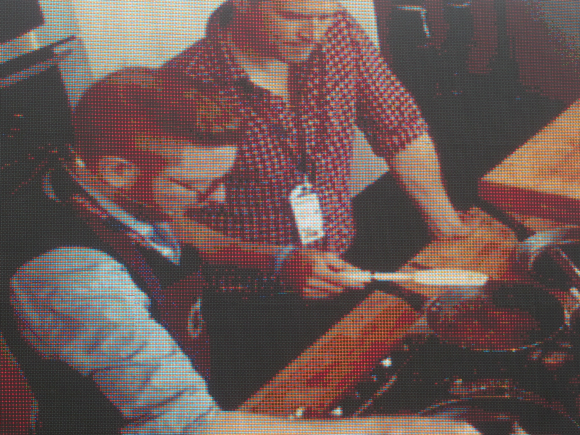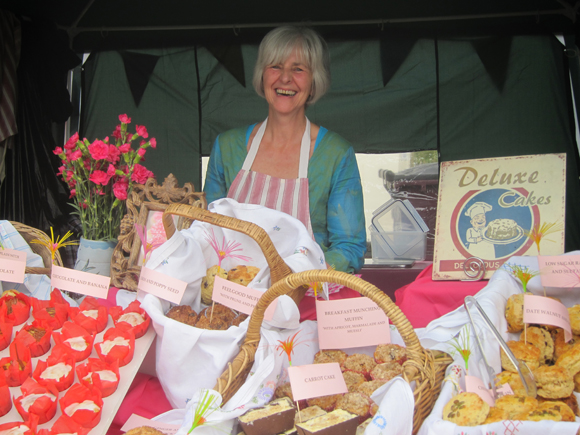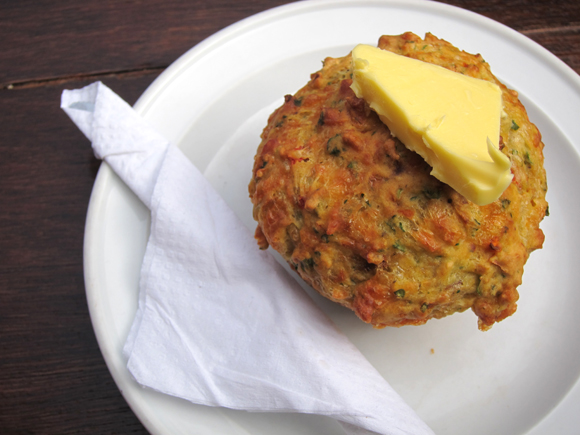Café Mor, worthy winners of the 2011 British Street Food award: ‘with their hand-made flatbreads, stuffed with seafood foraged from the Pembrokeshire shore. The Café will now be allowed to take their beach shack to the London 2012 Olympics, where they will serve up their food to the best athletes in the world.’ A conversation with the enthusiastic owner (in the blue shirt) shed some light on the mysterious ‘laverbread‘ which featured in many of the dishes: a traditional welsh delicacy made from Seaweed.
On Saturday at the Harvest festival I witnessed a day-long advertising shoot of a new commercial for Clover. Clover, according to Wikipedia, is ‘a brand of margarine sold in the United Kingdom, produced by the Dairy Crest group. It resembles butter but is easier to spread when cold. It is made from ingredients including vegetable fat and buttermilk. The brand was launched in 1983 and is claimed to be worth £81m at retail value.’ The value of the ‘brand’ was evident in the vast amount of money being invested in the shoot: In an elaborate country-style ‘village fete’ setting a lineup of senior citizens sang an amended version of the Tribe Called Quest track ‘Can I kick it?‘ They came forward one-by-one to ask ‘Can I have it? with the chorus answering ‘Yes you can!’ The implication is that Clover, being low-fat, is ‘good for you,’ certainly better for you than butter, which means you can safely enjoy it, and use it generously. It may even lead to a long and healthy life. The stamina of the performers was extraordinary, completing take after take throughout the day, with sustained conviction. Perhaps there is something to be said for Clover after all. But in the context of a festival showcasing the best of British food, I found it ironic that the biggest song and dance was being made on behalf of a product which isn’t (food).
A series of demonstrations and conversations with Celebrity Chefs and food aficianados took place throughout the day. Among these, a talk by Jay Rayner, food writer for the Observer. I was prepared to be disenchanted, having been unimpressed with a recent article Rayner wrote (‘Farmers markets won’t change the world’) which tagged the Farmers Market experience as a preserve of the rich and indulgent, which seemed to miss the point about the value of Farmers Markets and market shopping in general. However, there was a refreshing candour to his talk. While sharing some of his more entertaining reviews, together with criticism he himself has received, he laid bare the nature of life as a newspaper critic: clearly stating that his job as a restaurant reviewer was primarily to ‘sell papers.’ He revealed it is much easier to write well, when speaking of bad experiences. It’s also what the punters like to read. He admitted to being a ‘greedy man’ who loves to write. Fair enough.
There were plenty more live cooking demonstrations by leading Chefs and food presenters. Lots of food for thought. Insightful in terms of cooking expertise and ideas presented, but also in the conversation which swirled around the creation and enjoyment of food. The nature of celebrity chefdom. The love (nay, deification) of Chocolate. Use of sugar, oil, salt in cooking. The way our food relationships are characterised, pigeon-holed, heralded or undermined. A sample of snippets: a forced Vegan diet was regarded as a form of purgatory; the copious use of sugar in a dish celebrated as a kind of birthright.
In closing, a tribute to the stand which was my favourite of the weekend. It stood out among the plethora of concept food stalls, unsatisfying ‘famous-chef’ snacks, overpriced money-spinners. Run by a group of delightful ladies and gents, this stall was fairly bursting with home-baked goods prepared with wholesome, real ingredients. Amongst them, the best raisin scone I’ve had for some time: light, fluffy, delicious. A Cheese and Sundried Tomato Scone which reminded me of the ones my Mum used to bake on Wintry weekend’s: enjoyed hot, buttered, with a fresh bowl of steaming Soup. A true illustration of ‘cooking with heart,’ which goes to show wholefood cooking does not always have to mean Brown Rice, Aduki Beans and Wakame.
